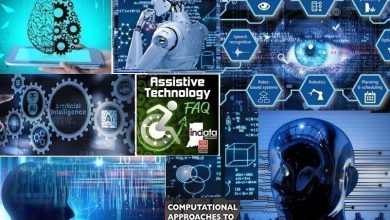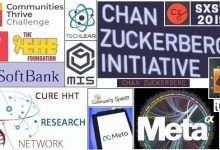
Asperger’s Syndrome (AS) is named after the Austrian paediatrician Hans Asperger who coined the term in a 1944 study where he described the symptoms as belonging to autistic psychopathy. He observed autism-like behaviors and difficulties with social and communication skills in boys who had normal intelligence and language development. Even though people with AS or High-Functioning Autism have normal language capabilities, average or above average intelligence, and fixated interests, they display autism-like abnormalities in their social interactions with non-autistic people (the social norm). AS is characterised by a lesser or more severe degree of impairment in communication skills and language, and repetitive or restrictive patterns of thought and behaviour; however, AS affects less areas of development than full spectrum autism. AS individuals feel, hear, and see the world differently. The disorder does not impact cognitive ability, but can affect the individual’s understanding of body language cues. AS cannot be cured, but early diagnosis and intervention is necessary. A common term that people with Asperger’s have coined for themselves is the term ‘Aspie’ for High Functioning Autism. Asperger syndrome, like all autism spectrum disorders, has a strong genetic predisposition. Doctors believe that other factors in the environment are also involved in the development of the syndrome. A diagnoses of AS sounds more intimidating than it really is. While on the ASD spectrum, many ‘Aspies’ can function in social settings without you even knowing their condition. The symptoms are common among engineers and scientists who are mostly engaged with machines and physical nature. They see these careers as being unable to confuse their moods and thoughts.
Behavioural symptoms of autism usually appear between twelve and eighteen months and even earlier in life. Five different types of autism have been merged into one disorder. They were Asperger syndrome (the mild form of autism), Autistic Disorder or classic autism, Childhood Disintegrative Disorder, Pervasive Developmental Disorder – not otherwise specified (PDD-NOS), and Rhett Syndrome (a rare genetic disorder). The condition autism spectrum disorder (ASD) was first recognised as a unique diagnosis by the American Psychiatric Association and listed in the Diagnostic and Statistical Manual of Mental Disorders (DSM). ASD is a neurological and developmental disorder that starts early in childhood and lasts throughout the person’s life. It causes problems with social skills, behavior, and coordination. Signs and symptoms can vary from one child to another and range from mild to severe. Researchers have reported rare cases of what they call ‘optimal outcome’ in high-functioning children. This does not mean that they have been cured. The milder form (Asperger syndrome) might not be detected by doctors and teachers during childhood. Studies have focused on autistic people with either a low intelligence quotient or the high-functioning side of the scale. It is an emotional and social disorder which affects how a person acts, communicates (interacts with others), and learns. Symptoms of ASD are abnormal facial expressions or body posture, abnormal tone of voice and monotonous speech, poor or total avoidance of eye contact, a deficit in language comprehension (therefore a delay to learn to speak), behavioural disorders and inappropriate social behaviour. In adulthood, such a person finds it difficult to understand what others think or feel, they are anxious about social situations, find it hard to make friends and prefer to be on their own.
The first priority in the diagnosis of ASD is to undergo a formal autism evaluation by a psychologist; not every family is able to afford this. Families are faced with a costly process in relation to the care of autistic children and adults. The pandemic era has exposed the model for autism care as inefficient and outdated. Autism care is one of the fastest growing areas of healthcare. The modern software method works better for everybody. Investors have identified digital autism care as a new field for startup options. As COVID-19 cases continue to spike and therapy centers remain closed, it increases the risk of regression in autistic children. The pandemic has improved the access of care for autistic people as well as the rate at which clinic care has been replaced by digital and home care. According to the software entrepreneur, CEO, and co-founder Yury Yakubchyk (of the San Francisco-based newly launched company Sprout), home care is the next advancement in the healthcare industry.
The digital era brings new technology and good news for teachers and parents when dealing with students of autism. According to Kristie Brown Lofland (Educational Consultant of the Indiana Resource Center for Autism), technology can be a valuable tool in ASD learning ability. Assistive technology or digital therapy for autism developed innovative therapies to motivate children in their daily environment and help them adapt. Technologies have sprouted up to integrate the classroom and help students with communication, interaction, participation, and speech. These alternative communication strategies can help autistic children to increase their motivational skills, develop a higher self-esteem, and boost their daily functionality and independence. Digital Arts for Autism specialises in preparing High Functioning Autistic Adults by training them in Digital Media and Animation. They present a comprehensive digital media training program and offer a Certificate of Completion in graphic or web design. The fact that students with ASD learn from visual media is due to the fact that pictures are the autistic’s first language; words are their second language.
Robyn Woods, the Founder and CEO of The Uncomplicated Family™ (TUF) Corporate Group is aware that ‘more than half of the world’s children play video games more than an hour a day and more than 15 per cent live with a neuro-developmental disability such as Autism Spectrum Disorder (ASD) and Attention Deficit Disorder (ADD)’. TUF is a group of companies that lead global projects in the digital therapeutic space. After health leaders have spent more than three years of international research and development, and in honor of World Autism Day, TUF have launched Kids Digital Health™ (games and content for children and families with complex needs). Kids Digital Health™ represents the best of what is known today in brain science, digital health, and entertainment for the child. It offers applications and content that has a positive impact on children’s development, health, and well-being. The Kids Digital Health™ platform gives parents the confidence of supporting their child’s cognitive development while it offers fun and a digital experience to the child.
For many people living with conditions such as autism, anxiety manifests in such a way that it has a big impact on their quality of life. By investigating the suitability of wearable health devices, Monash University built on prior research and found each experience of anxiety in autistic people as unique. Monash University’s view is that ‘one-suits all’ solutions are not suitable any more. They took a participating approach to co-develop prototypes with end users. A case study by students of this University is that of the co-development of one prototype; Snap is a digital stretch wristband that records interaction for later reflection. Snap contributes to technology by way of self-management of anxiety and addressing unique anxiety experiences.
Although assistive technology consist of simple to complex technological tools, all perform a vital role in helping to address the issues of autism in relation to behavior, self-care, communication, and social skills. The general use of assistive technology is to improve communication skills. There are hundreds of applications (at all abilities and levels) that have built-in features; one application could concentrate on the non-verbalism of a child or adult, while another application helps in a different facet than verbalism. Apart from being fun and leisure, favorable outcomes of digital support for autism communities are such as increased cognitive skills, improved communication, learning creativity and social participation, awareness of time and time management, and enhanced quality of life for carers and family.
According to the digital company Fierce Healthcare, the recently launched digital behavioral health company Sprout is a technically enabled autism care program which is focused on modernising autism care through customised in-home and online treatment plans; children are matched with therapists. Sprout emphasises that early detection is most important in the treatment of autism; however, families wait until after six months for a diagnosis. Sprout offers free assessments to properly diagnose children. A designated care coordinator works with families from the initial assessment. Immediately following the diagnosis, families are matched with therapists who work collaboratively to create personalised, at-home care plans to include ABA therapy, language, speech, and occupational therapy. Sprout is backed by institutional investors such as Bling Capital, General Catalyst, and Felicis Ventures. Yakubchyk (who was diagnosed with attention-deficit hyperactivity disorder as a child) pointed out that funds will be used for product development and to build a learning and education platform for therapists. Sprout has software that helps families coordinate care, refine care plans, and track progress. This advanced technical approach combined a digital experience for the parents with an increased measure of success for autistic children while it lowers the overall costs of care. Sprout is available nationwide and accepts all major forms of payment and insurance. Sprout intends to expand into other healthcare services such as Alzheimer’s, Crohn’s, and other chronic diseases.
Different startup companies concentrate on different areas of autism. Some will concentrate on autism-focused therapeutic and diagnostic products, while others concentrate on integrating care with digital tools or building virtual reality tools. One such company is Akili Interactive (who also offer prescription digital medicine) although best known for their video game for children with attention deficit hyperactivity disorder (ADHD) – they are exploring the use of technology for autism spectrum disorder treatment.
Digital technology allows us to solve problems in healthcare such as supporting the autistic person to attend university, take part in formal employment, and even travel independently. Of the many technological solutions, the Brain in Hand application (that includes free telephone), provides personal support to reduce anxiety. The Brain in Hand is a mobile application that needs a licensed subscription. It is part of a professional system that is used in combination with the Brain in Hand web software and human support. Involve a supporter such as a relative to help you make the most of Brain in Hand. Elevate is a brain training program that is designed to improve attention, memory, processing speed, math, and speaking skills. Each person is provided with a personal, controlled training program to maximise results. The more you train, the more you’ll improve your cognitive skills and boost productivity.











